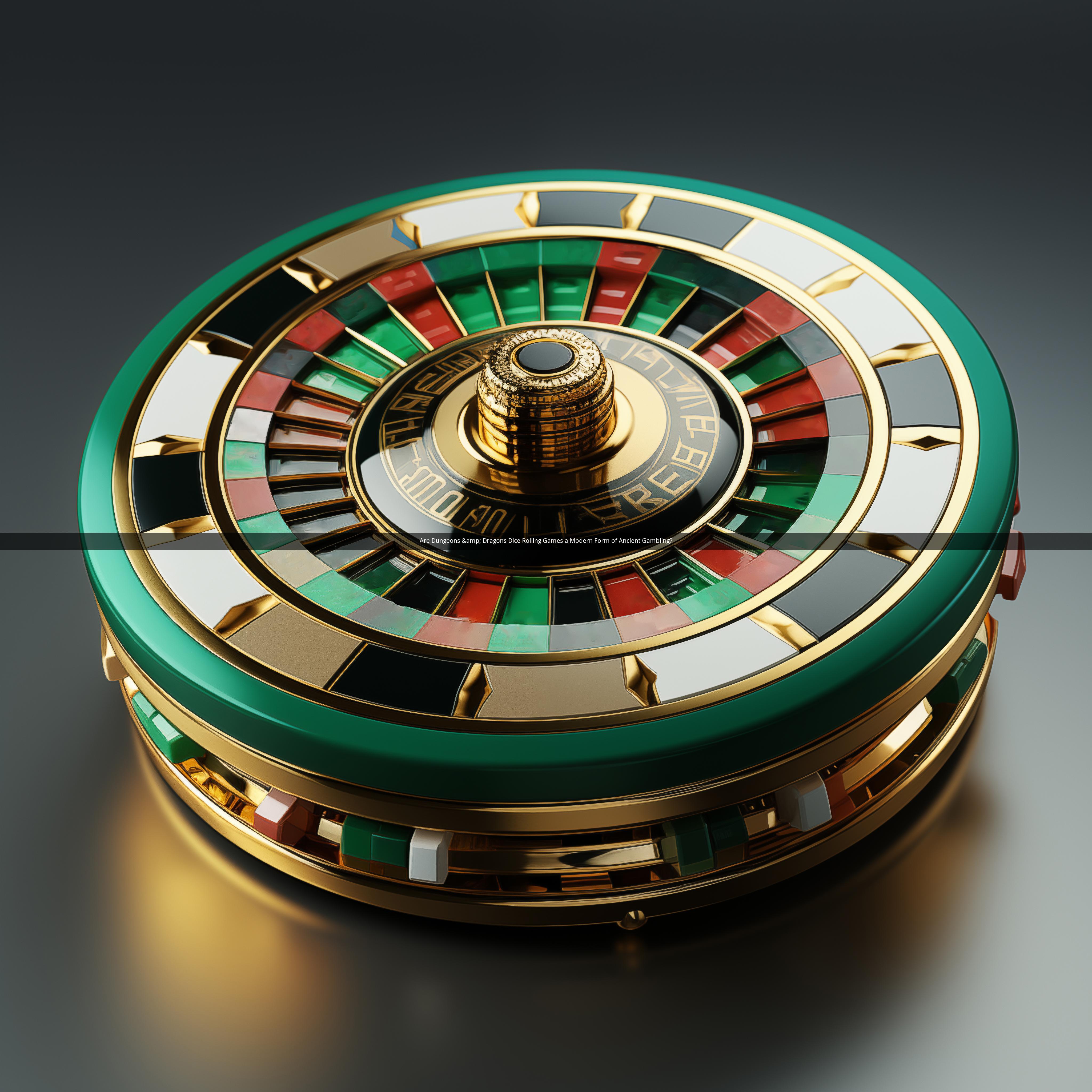
Table of Contents:
1. The Evolution of Dice Games
2. Dungeons & Dragons: A Brief Overview
3. The Role of Dice in D&D
4. Dice Rolling as a Skill in D&D
5. Comparing D&D Dice Games to Traditional Gambling
6. The Social Aspect of D&D Dice Rolling
7. The Psychological Draw of D&D Dice Games
8. Real-World Implications and Concerns
9. Case Studies: D&D Dice Games in Pop Culture
10. Conclusion
---
1. The Evolution of Dice Games
Dice have been a fundamental tool in human culture for thousands of years, serving as a means of divination, entertainment, and gambling. From ancient civilizations like the Egyptians and Greeks to the modern world, dice have played a significant role in shaping various forms of gambling and games of chance.
2. Dungeons & Dragons: A Brief Overview
Dungeons & Dragons (D&D), often referred to as the grandfather of role-playing games (RPGs), was first published in 1974. It has since grown into a massive franchise with millions of players worldwide. At its core, D&D is a collaborative storytelling game where players take on the roles of adventurers in a fictional world, facing challenges, solving puzzles, and engaging in combat.
3. The Role of Dice in D&D
Dice are central to the gameplay of D&D. The game relies heavily on random chance, with dice determining the outcomes of many actions, such as attacks, saving throws, and skill checks. This random element adds a layer of unpredictability that keeps the game engaging and exciting for players.
4. Dice Rolling as a Skill in D&D
While the outcomes of dice rolls are random, players can develop their dice rolling skills over time. This includes understanding the probabilities of different dice combinations and learning to read the dice quickly. A skilled player can often influence the outcome of a dice roll by the way they hold and roll the dice, a practice known as "dice control."
5. Comparing D&D Dice Games to Traditional Gambling
D&D dice games are often compared to traditional forms of gambling, such as craps or roulette. However, there are several key differences. In D&D, the dice are used to create a narrative and advance the story, rather than simply determining a winner or loser. Additionally, the social aspect of D&D, where players collaborate to overcome challenges, is absent in most traditional gambling games.
6. The Social Aspect of D&D Dice Rolling
One of the most unique aspects of D&D dice rolling is its social nature. Players gather around a table, sharing laughter, excitement, and disappointment as the dice dictate the fate of their characters. This communal experience fosters a sense of camaraderie and connection that is often missing from solitary forms of gambling.
7. The Psychological Draw of D&D Dice Games
The psychological draw of D&D dice games lies in the anticipation and excitement of the unknown. Players are always on the edge of their seats, waiting to see what the dice will bring. This sense of unpredictability keeps the game fresh and engaging, even after years of play.
8. Real-World Implications and Concerns
Despite its popularity, some have raised concerns about the potential for gambling addiction in D&D dice games. However, the collaborative nature of the game and the focus on storytelling rather than winning or losing money mitigate these concerns. Moreover, many players find that D&D serves as a healthy alternative to traditional forms of gambling.
9. Case Studies: D&D Dice Games in Pop Culture
Dungeons & Dragons has made its way into various forms of pop culture, from movies and television shows to video games and literature. One notable example is the 2000 film "Dungeons & Dragons," which showcases the dice rolling and storytelling aspects of the game. These depictions often highlight the social and narrative elements of D&D, emphasizing its unique appeal.
10. Conclusion
While Dungeons & Dragons dice rolling games may share some similarities with traditional forms of gambling, they offer a unique and engaging experience that is distinct from the world of chance. The collaborative storytelling, the social aspect, and the psychological draw of unpredictability make D&D dice games a modern form of entertainment that is both challenging and enjoyable.
---
Questions and Answers:
1. Question: How do dice rolling skills in D&D differ from those in traditional gambling games?
Answer: In D&D, dice rolling skills involve understanding probabilities and reading the dice quickly, while in traditional gambling, skills may include card counting or strategy.
2. Question: Can playing D&D dice games lead to gambling addiction?
Answer: While there is a potential risk, the collaborative and storytelling nature of D&D often mitigates this concern, as the focus is on the game's narrative rather than winning or losing.
3. Question: What is the role of dice in D&D storytelling?
Answer: Dice are used to determine the outcomes of actions, adding a layer of unpredictability that helps drive the story forward and create engaging gameplay.
4. Question: How has Dungeons & Dragons influenced modern pop culture?
Answer: D&D has influenced various forms of pop culture, including movies, television, video games, and literature, often highlighting the game's collaborative storytelling and social aspects.
5. Question: Why do many players find D&D dice games more engaging than traditional gambling games?
Answer: Players often find D&D dice games more engaging due to the narrative-driven gameplay, the collaborative nature of the game, and the psychological draw of unpredictability.